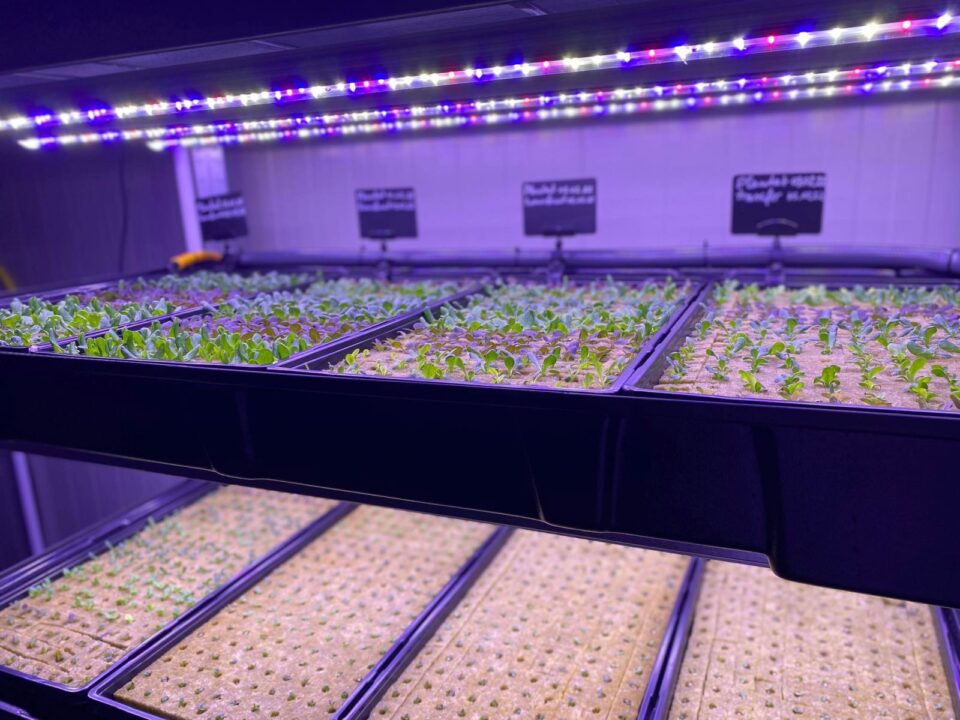Vertical farming and the development opportunities for this sector for Moldova was one of the most discussed topics of the international conference “HortiTech: the latest digital technologies in the fruit and vegetable business – an opportunity for Moldova,” which took place on May 25, 2023, in Chisinau.
According to Kateryna Poberezhna, FAO International Consultant, market availability is the main success factor for vertical farms. In her presentation, Kateryna spoke about the working business models of vertical farming. She highlighted (1) production for the end consumer, when the farm deals with the entire chain from seeds propagation to distribution of finished products to supermarkets, (2) the technology for rent makes it possible to get a turnkey vertical farm without high initial investment and (3) – service farming so-called “farming as a service” model. Each of these models has its advantages and disadvantages, but what is essential – each is working, provided there is a customer ready to pay.
Maritė Gailite, a representative of the Association LATVIJAS DĀRZNIEKS, highlighted the main mistakes made by the founders of vertical farms. According to her, the founders of vertical farms often strongly emphasize aesthetics and architecture while ignoring the needs of plants, while plants are alive creatures. The main challenge is ensuring that the climate (humidity, temperature, light penetration) throughout the farm is the same – both on the upper racks and the lower ones. Also, it should be convenient for people to maintain such a farm; the shelves should be ergonomic. Otherwise, harvesting should be automated. According to Marite, a vertical farm should first be comfortable for plants and the people serving them.
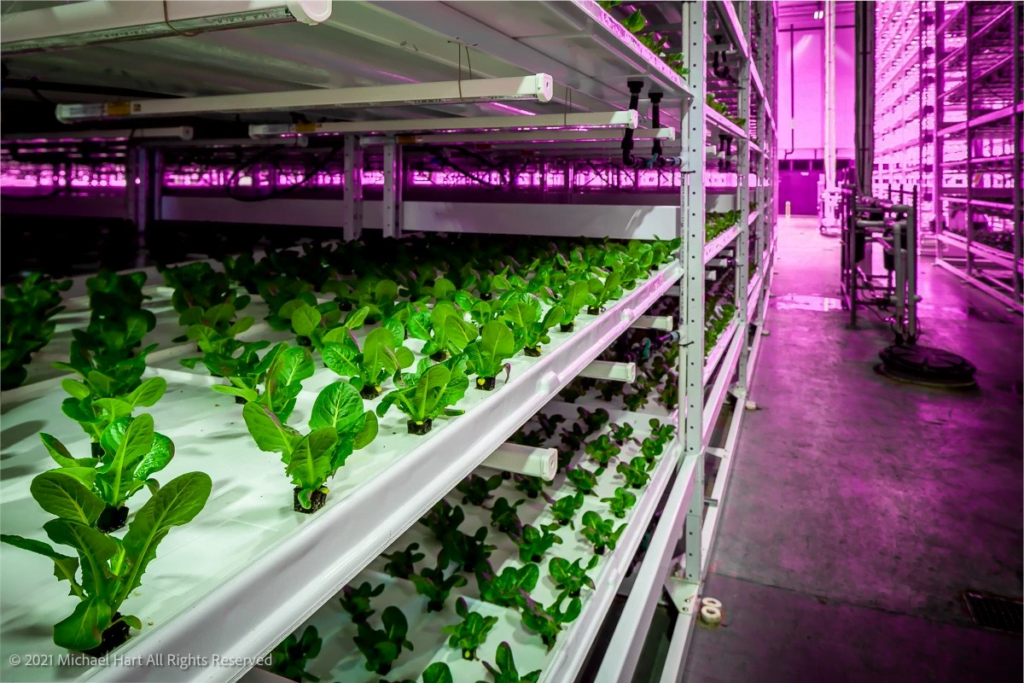
Vasile Pojoga, Project Manager of the Federation of Agricultural Producers of Moldova FARM, presented information on the general situation in vertical farming in Moldova, specializing mainly in cultivating lettuce and microgreens. Now, lettuce from vertical farms is sold primarily in retail chains (80%) and HoReCa (20% of sales). Sales of microgreens are radically different: supermarkets – 20%, HoReCa – 80%. The FARM expert also noted that over the past ten years, imports of culinary herbs to Moldova increased by 4.3 times. Moreover, the highest growth has been observed over the past three years. This is partly because, during the pandemic, the consumption of healthy foods, including greens, has increased. Usually, greens are imported from 11 countries. Last year, the leading suppliers of these products to the Moldovan market were Italy (about 40%), Spain (25%), the Netherlands (14%), Romania (7%), and Turkey (about 6%).
In her speech, Zinaida Plamadeala, the founder of DERJANT, spoke about growing lettuce on her 70 sq.m. vertical farm, where 75 thousand plants are produced annually. She noted that such types of lettuce as Romaine, Salanova, Lettuce, Oakleaf, Butterhead, and Batavia, enjoy the greatest preference among consumers. The main sales channel is retail, while HoReCa accounts for only about 20%. Zinaida Plamadeala highlighted the importance of using renewable sources in vertical farming – because electricity is, of course, the most significant cost item for this type of agribusiness. The DERJANT farm has 40 kW photovoltaic panels, but their energy covers only 40-45% of the annual need of the enterprise. There is no opportunity to increase the generating capacity due to the limitations of the roof of the building in which the farm is located. The company’s founder warned future founders of vertical farms about this and other vital points that need to be considered when planning investments in this type of agribusiness.
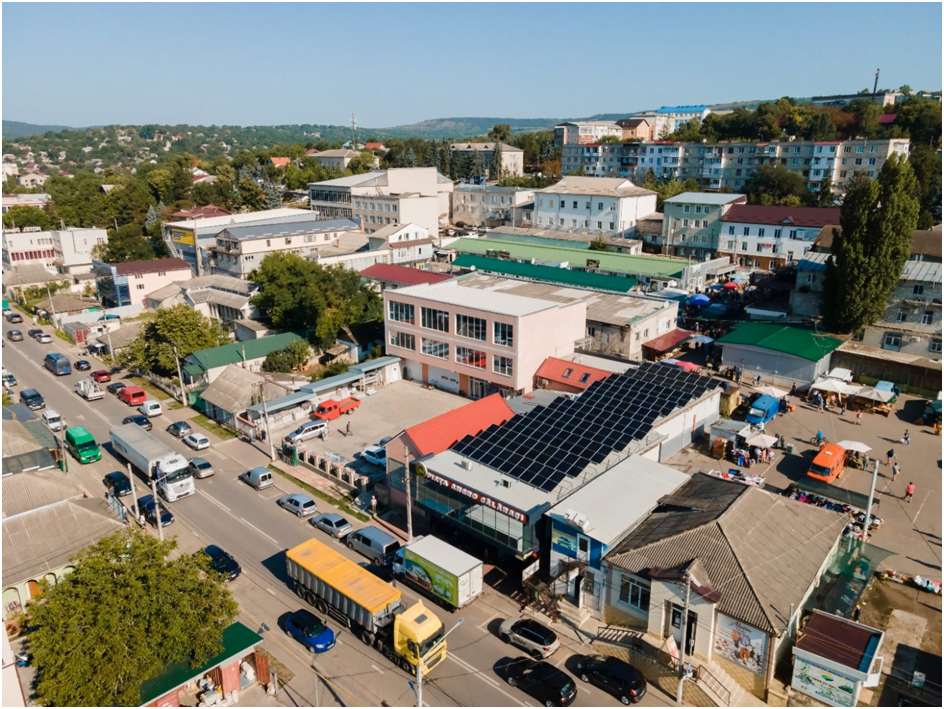
Dmitry Plyushchev, the founder of Papa’s Greens, believes that the main thing is to grow a quality product and sell it correctly. Dmitry emphasized that about 90% of agricultural producers in Moldova do not understand what “product placement” is, high-quality packaging, and what the end consumer needs. According to him, Papa’s Greens delivers products to 60% of HoReCa sector facilities in Chisinau thanks to the service – availability (“always on the phone”), product availability, and fast delivery. In addition, washed and packaged mixed salads, micro-greens, and edible flowers produced by Papa’s Greens are sold in Moldovan supermarket chains. The entrepreneur’s goal is to compete with Italian greens imported to Moldova. To do this, the company invests more than 25-30% of its profits in marketing to inform and educate the client about the benefits of fresh salads and micro-greens.
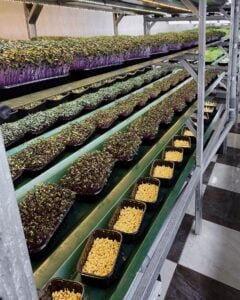
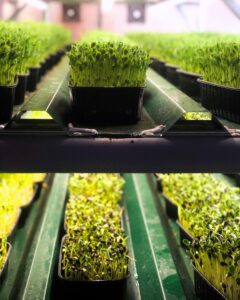
The conference “HortiTech: the latest digital technologies in the fruit and vegetable business – opportunities for Moldova” is organized by the EastFruit project together with the Federation of Agricultural Producers of Moldova (FARM) with the support of the European Bank for Reconstruction and Development (EBRD) and the Food and Agriculture Organization (FAO).
The use of the site materials is free if there is a direct and open for search engines hyperlink to a specific publication of the East-Fruit.com website.




